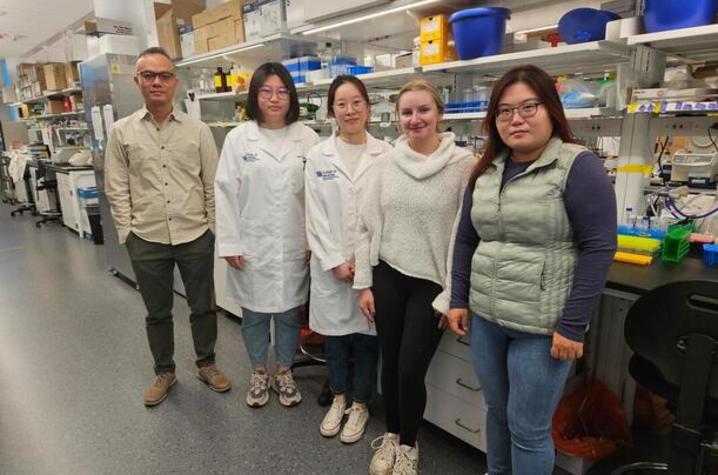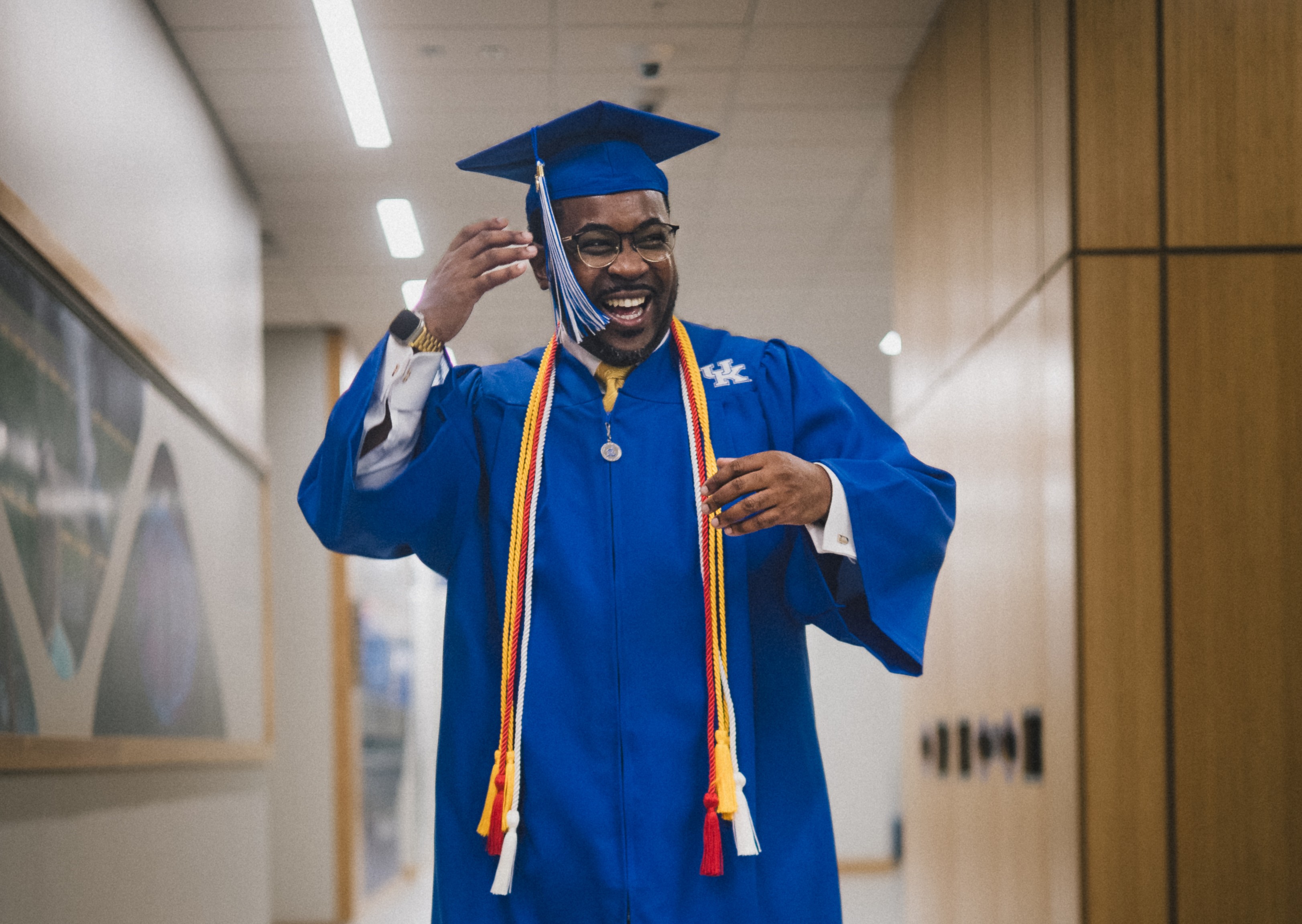LEXINGTON, Ky. (Jan. 28, 2022) – Heart disease is the leading cause of death among women in the United States. More than 4,800 women die each year from heart disease in Kentucky.
News
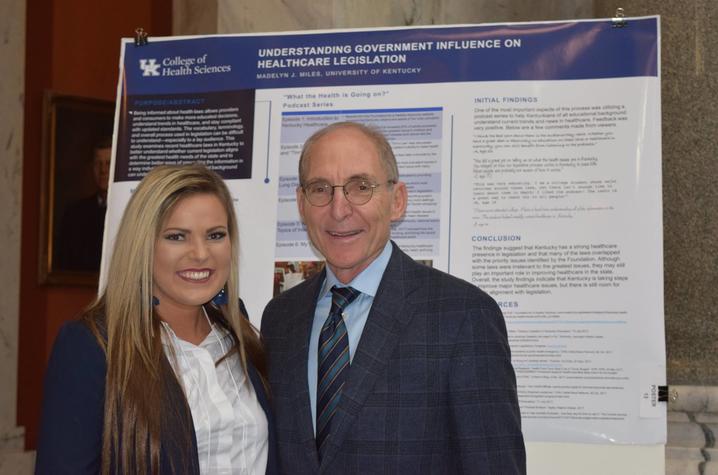
LEXINGTON, Ky. (Feb. 11, 2022) — Ten undergraduate researchers from the University of Kentucky have been chosen to present their research at the 2022 Posters-at-the-Capitol event on March 3 at the Kentucky state capitol in Frankfort. Now in its 20th year, this event will have more than 100 student representatives from across the state displaying the results of their research and scholarly or creative work.
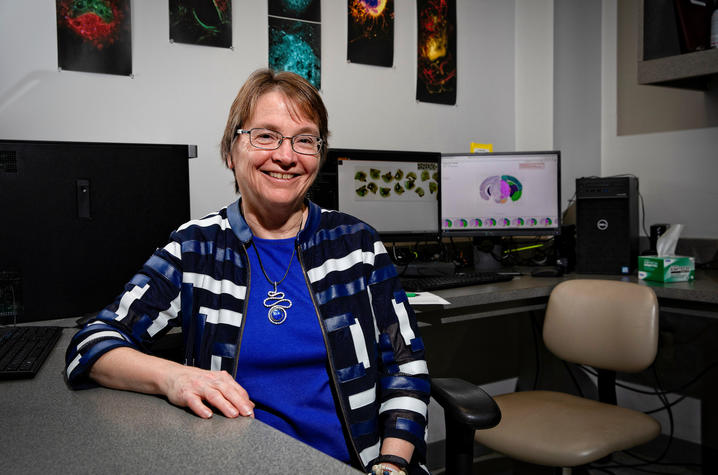
LEXINGTON, Ky. (Feb. 10, 2022) – Linda J. Van Eldik, Ph.D., director of the Sanders-Brown Center on Aging at the University of Kentucky and the Dr. E. Vernon Smith and Eloise C. Smith Alzheimer's Research Endowed Chair, has been appointed to the National Advisory Council on Aging (NACA) among many notable leaders in aging from across the country.
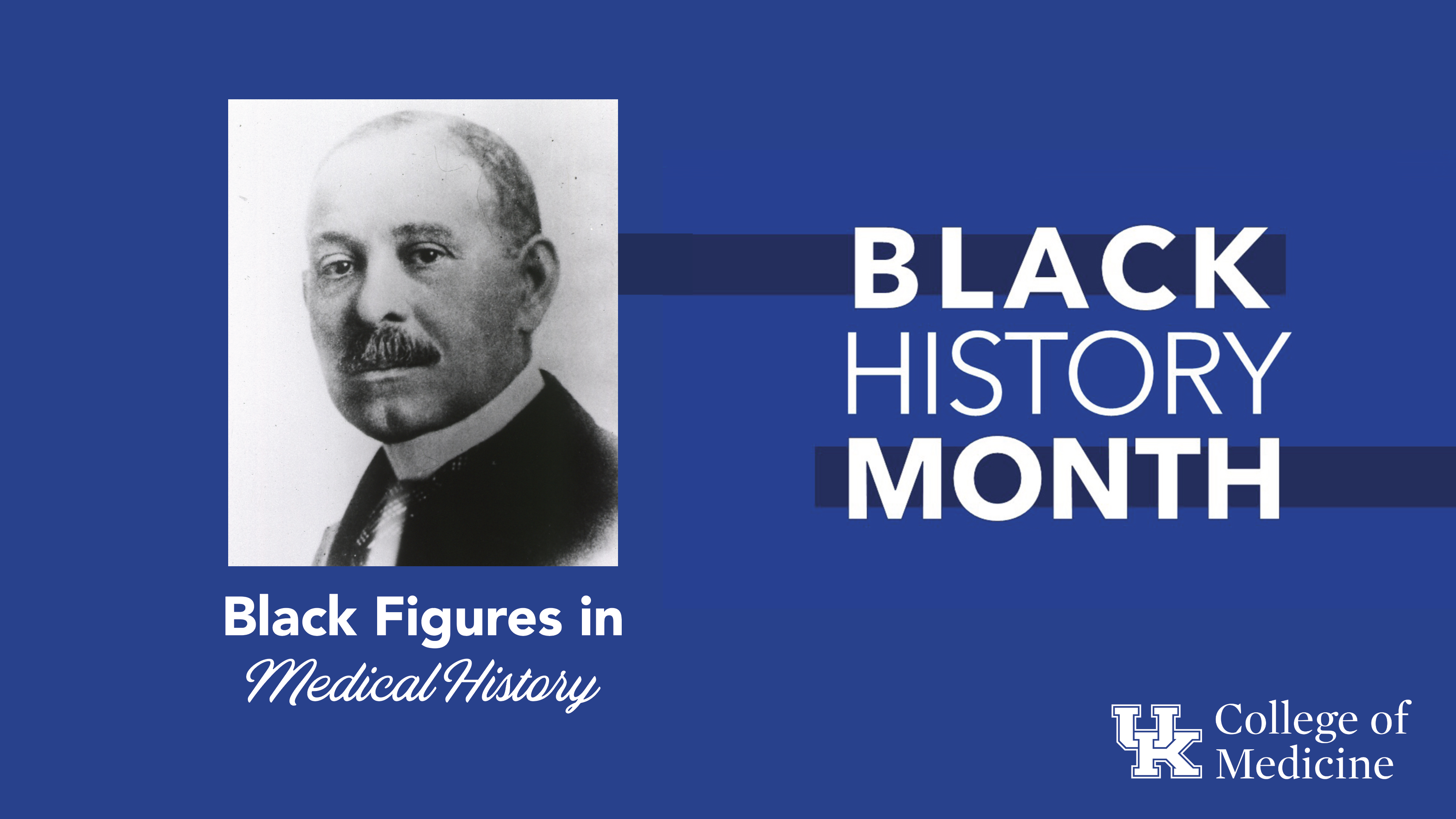
During Black History Month, the UK College of Medicine is highlighting black figures who paved the way for an equitable future in medicine.
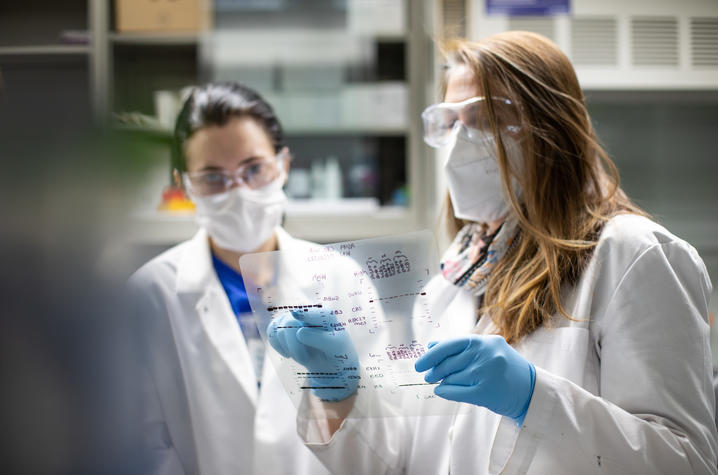
LEXINGTON, Ky. (Feb. 9, 2022) — Recent findings in the laboratory of University of Kentucky Markey Cancer Center researcher Christine Brainson, PhD, could lead to promising treatments for two molecular subtypes of lung cancer.
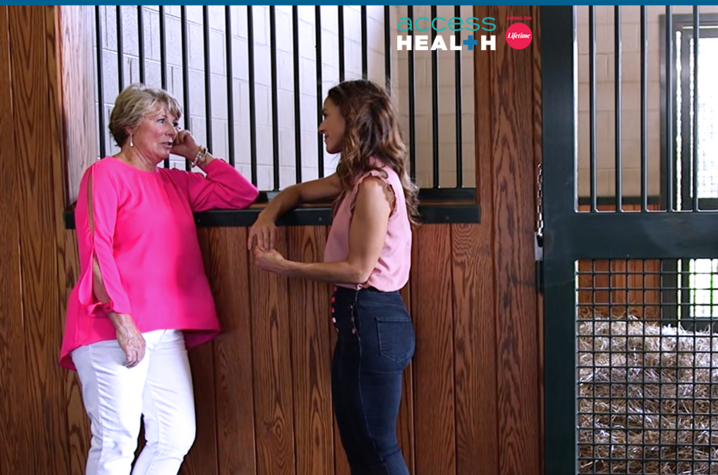
LEXINGTON, Ky. (Feb. 9, 2022) — Access Health is a series airing on the Lifetime network that aims to educate its viewers on the latest advances in medicine, nutrition, and fitness. Each episode addresses an important issue related to one of the topics and provides its viewers with insight from industry experts.
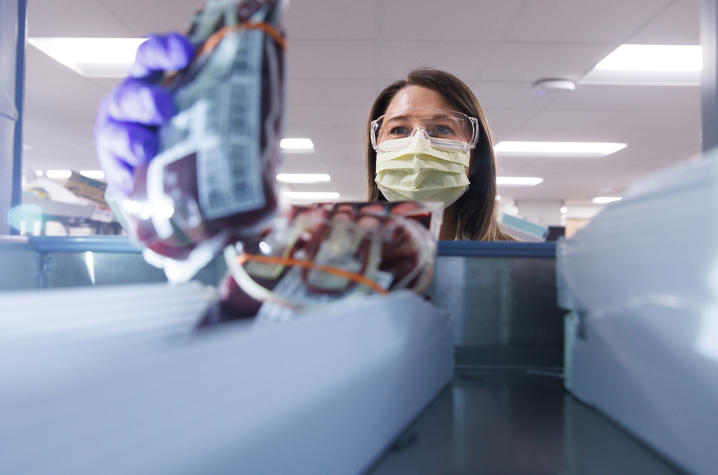
LEXINGTON, Ky. (Feb. 9, 2022) — On a typical day inside the blood bank at the University of Kentucky Albert B. Chandler Hospital, the refrigerators are well-stocked with shelves of donated blood – a lifeline for countless patients dealing with severe injury or illness.
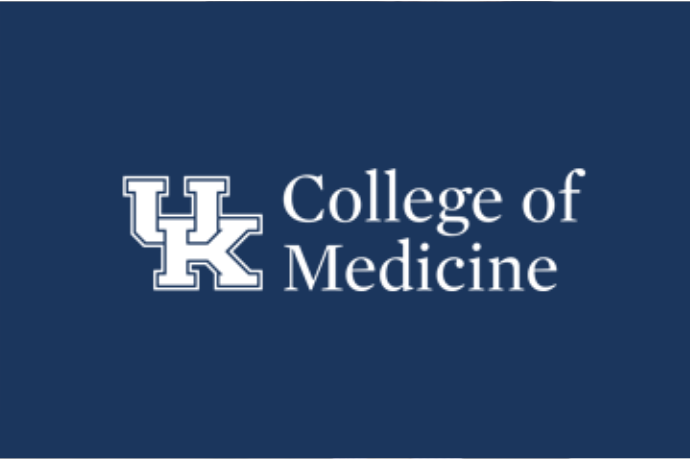
The UK College of Medicine chapter of the Student National Medical Association (SNMA) is commemorating Black History Month by curating educational information about the Black community's impact in medicine.
This week, SNMA is highlighting four trailblazing Black physicians and health care workers from American history who paved the way for an equitable future.
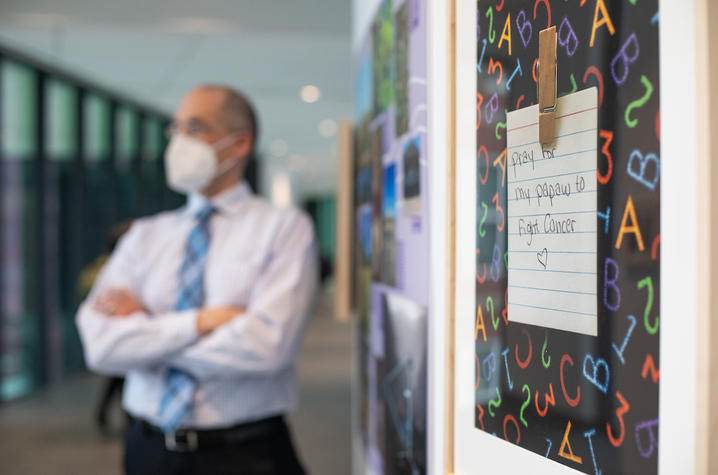
LEXINGTON, Ky. (Feb. 4, 2022) – If you look at a photograph of a butterfly, what thoughts run through your mind?
At first, you might notice its patterns and bright coloring. Or perhaps you dwell on its surroundings – leaves, flowers and other foliage.
For one Carter County high school graduate, the butterfly represents a deeper meaning.
“A butterfly resembles change,” said 19-year-old Brianna Fry. “Kentucky needs change. We need a breakthrough.”
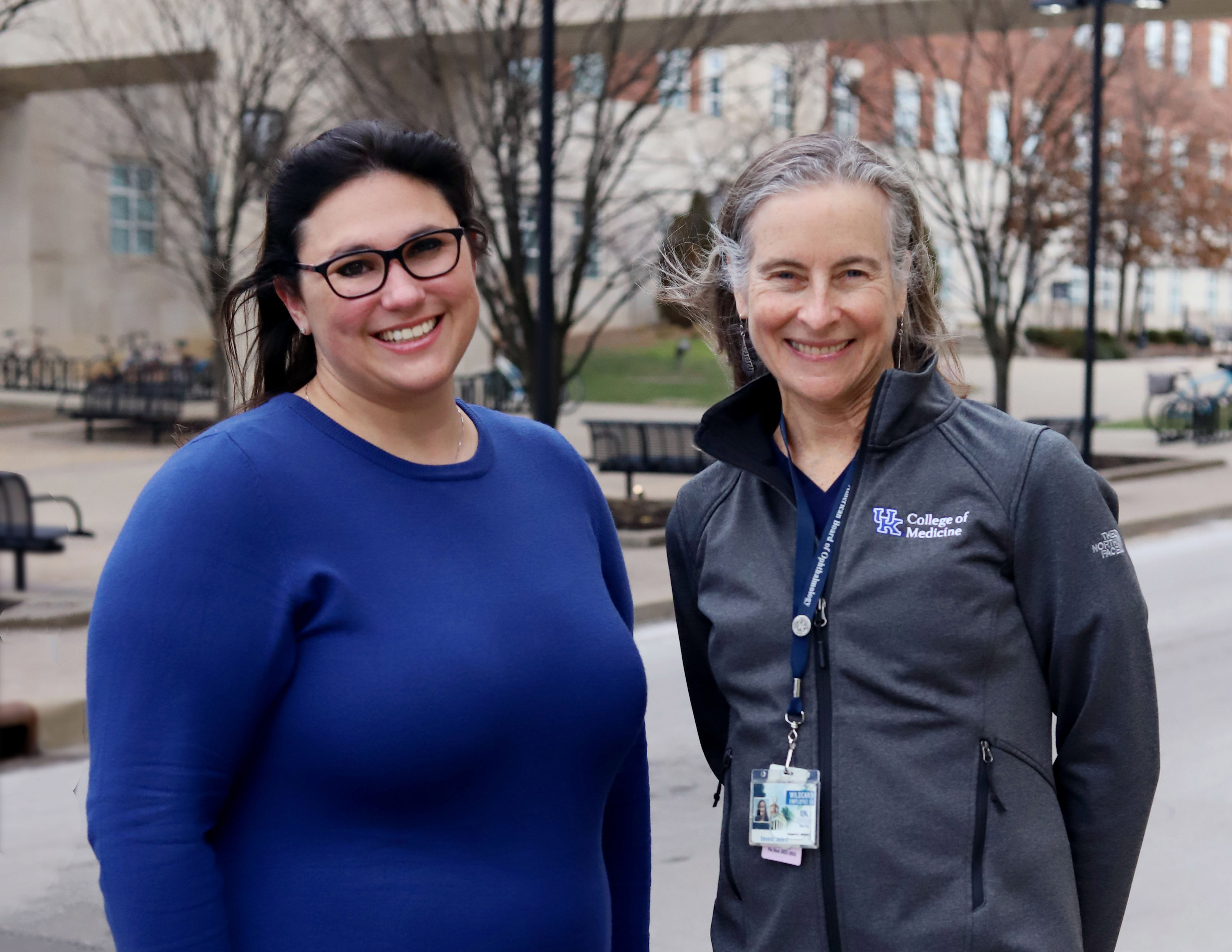
When Elizabeth Rhodus, PhD, was 16 years old, she suffered a near-fatal car accident, which left her with significant injuries that included fractures around her eye socket. Dr. Rhodus had already struggled with eye muscle problems that this accident only exacerbated.
The rural Kentucky native was admitted to UK HealthCare and along her journey, was treated by an ophthalmologist who not only provided her with exceptional care, but who also became an influential figure in her own path to a career in academic medicine.
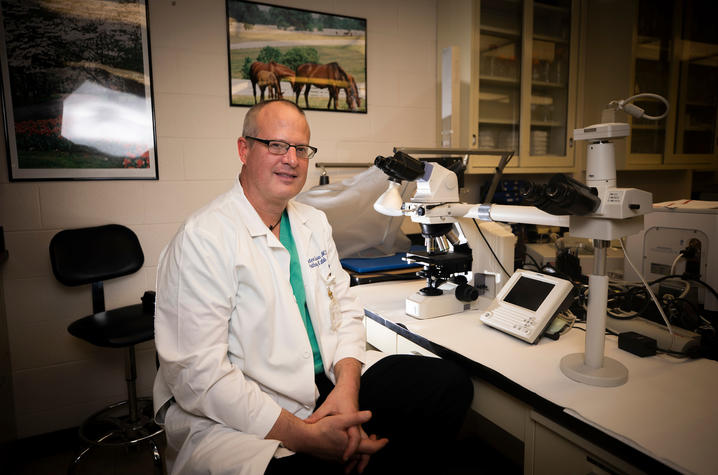
LEXINGTON, Ky. (Feb. 2, 2022) – A team of researchers from the University of Kentucky’s Sanders-Brown Center on Aging (SBCoA) is working to identify new proteins that are destructive to the brain. They know that about 25% of individuals, and 50% of individuals with Alzheimer disease, have the genetic mutation APOE ε4 allele — a known risk factor for the disease.

LEXINGTON, Ky. (Feb. 2, 2022) – The University of Kentucky Stuckert Career Center, housed in the Office for Student Success, is currently accepting nominations for UK Intern of the Year and UK Employer of the Year awards. The awards seeks to recognize and honor the achievements of student interns as well as acknowledge the deep investment employers make in our students every year. To honor both students and employers, UK plans to host a Spring Awards Ceremony on Thursday, April 21, 2022, 5 to 6 p.m., at The Cornerstone.
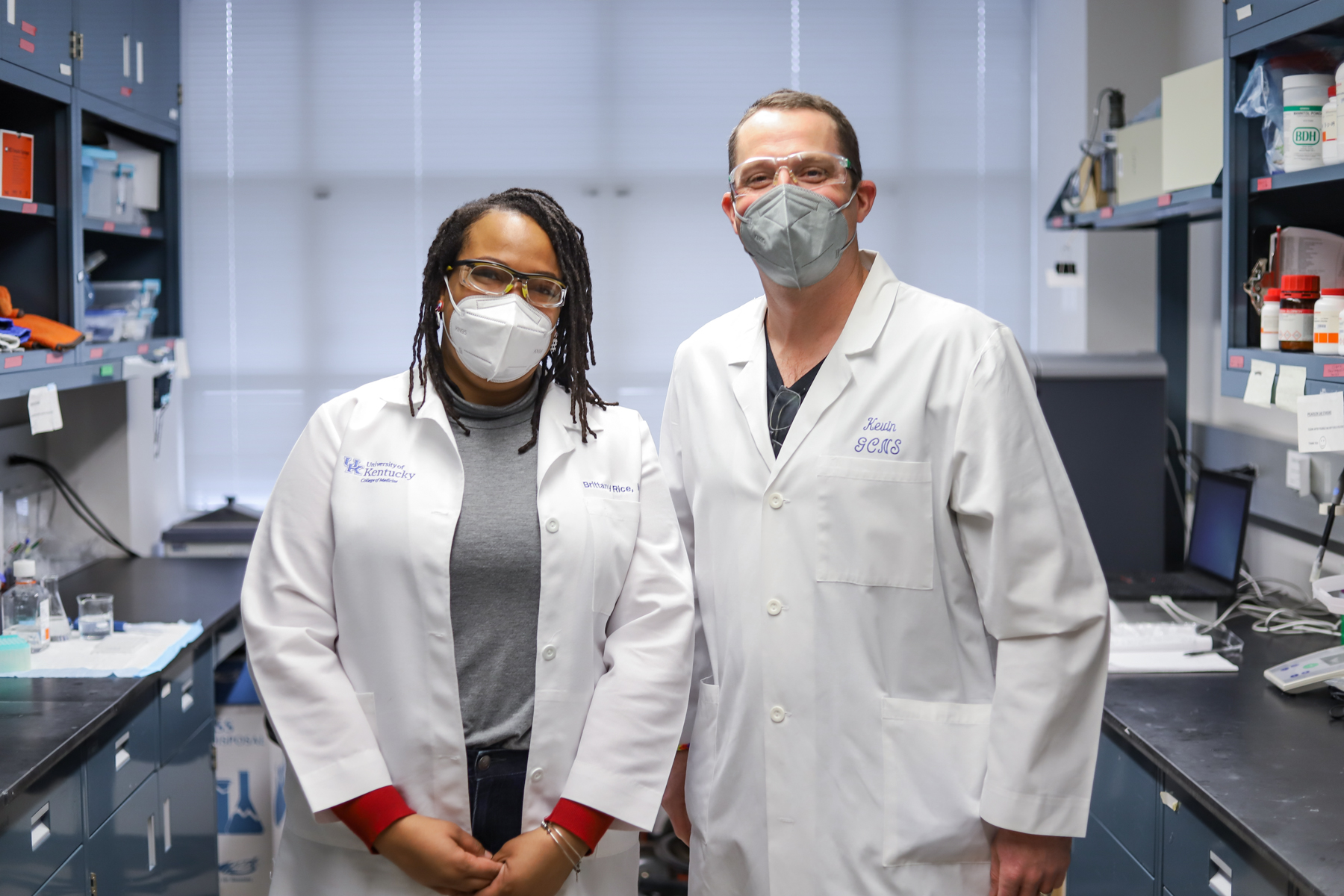
Urim Geleta is only into her senior year of her undergraduate degree, yet she has already played a key role in neuroscience research at UK.
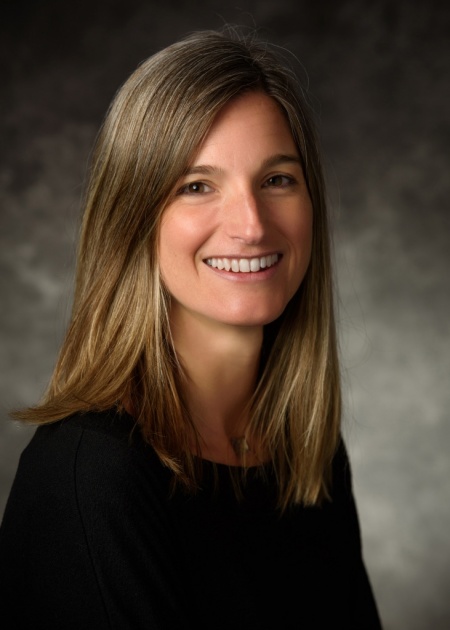
Frédérique Yiannikouris, PhD, is an assistant professor of pharmacology and nutritional sciences and serves as a member of the nutritional sciences curriculum committee in the department. She has co-organized the University of Kentucky’s Healthy Hearts for Women (HHW) Symposium since its beginning in 2015. She is also actively involved in Women in Medicine and Science (WIMS) as a co-chair in memberships and nomination subcommittee, member of the executive committee, and participant in the mentoring program.
Q: What are your current research interests?

Josie (Jodi) Llanora is a third-year medical student at the UK College of Medicine-Lexington Campus. In the following Q&A, she shares her inspiration for pursuing medical school and how involvement in organizations at the college has fueled her passion for medicine.
Q: Where are you in your medical training?

Q: What do you hope to accomplish with an education at the College of Medicine?
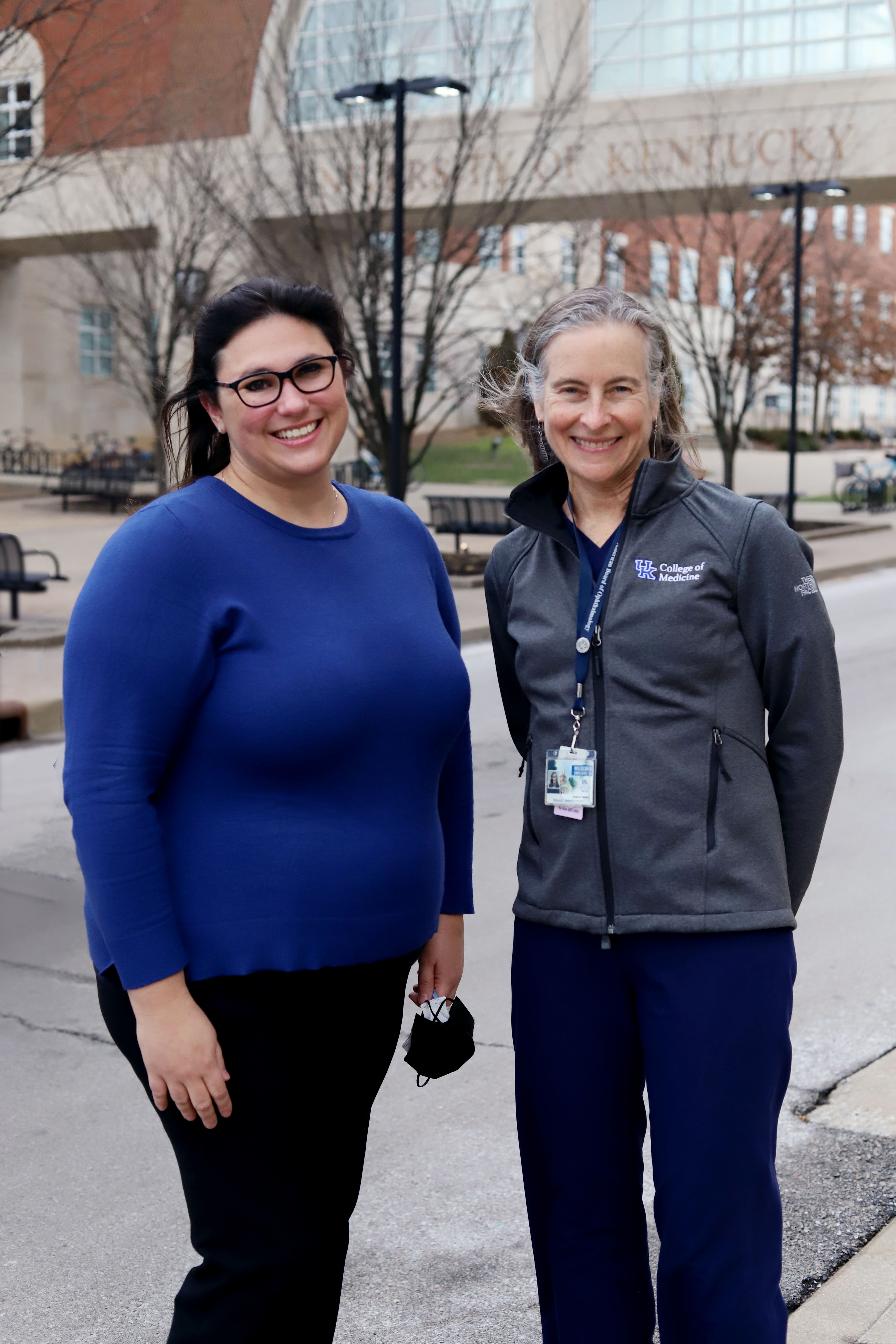
When Elizabeth Rhodus, PhD, was 16 years old, she suffered a near-fatal car accident, which left her with significant injuries that included fractures around her eye socket. Dr. Rhodus had already struggled with eye muscle problems that this accident only exacerbated.
The rural Kentucky native was admitted to UK HealthCare and along her journey, was treated by an ophthalmologist who not only provided her with exceptional care, but who also became an influential figure in her own path to a career in academic medicine.
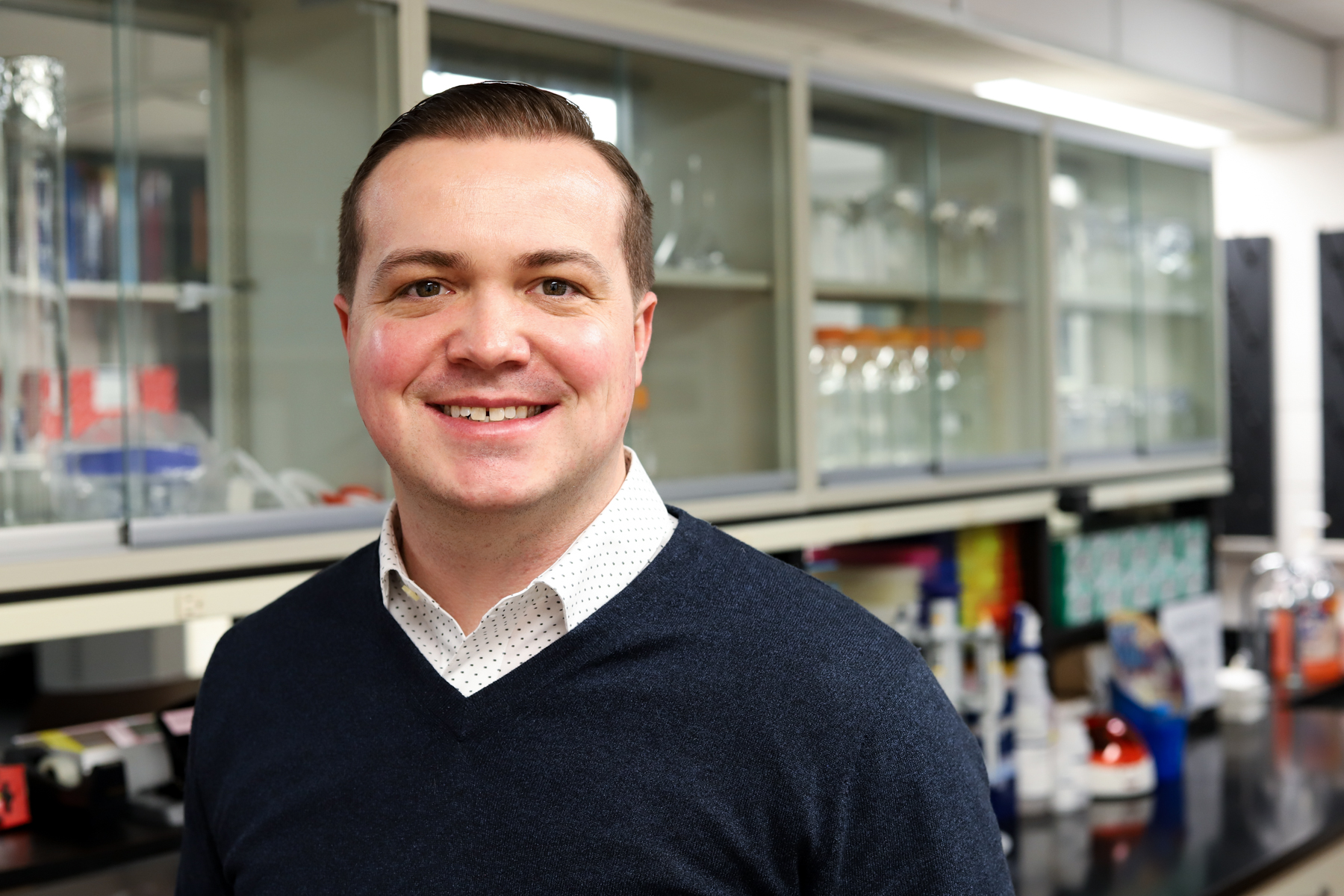
Since he was a graduate student, Patrick Hannon, PhD, has had his eyes set on a prestigious National Institutes of Health (NIH) grant that he knew, if he received it, would enable him to make a tremendous impact in his career goal of advancing reproductive care for women.
Dr. Hannon, now an assistant professor in the UK College of Medicine Department of Obstetrics and Gynecology, was elated to find out that this winter, he achieved his longtime goal.
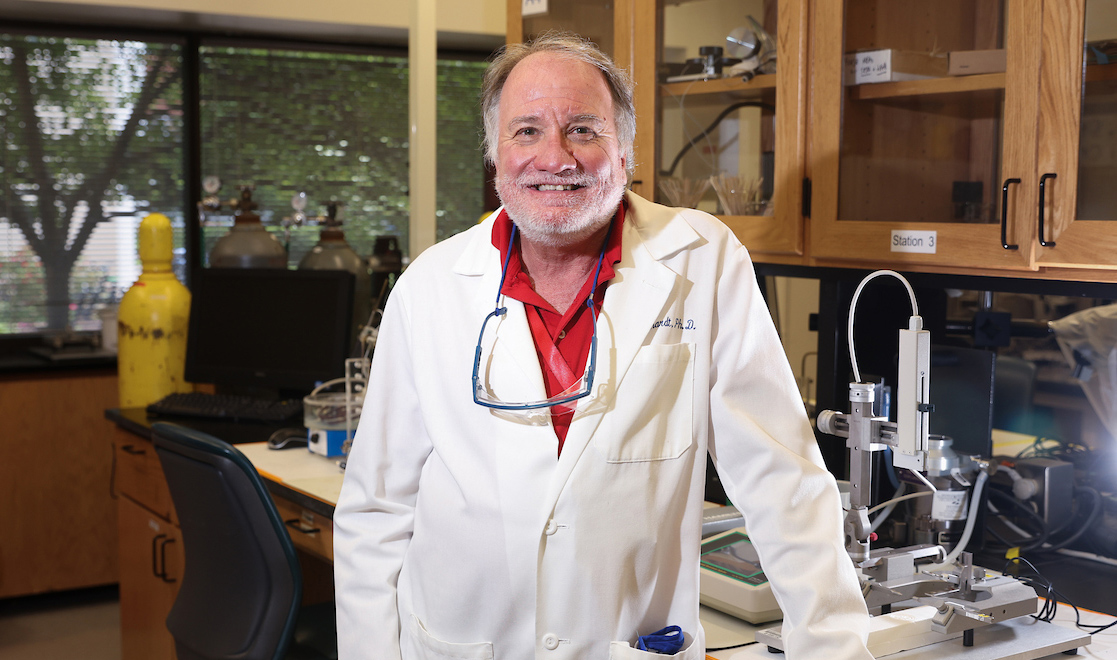
Greg Gerhardt, PhD, is a professor of neuroscience and researcher with the Spinal Cord and Brain Injury Research Center (SCoBIRC) and Brain Restoration Center, as well as advisor for the MD/PhD program. He currently serves as co-principal investigator for the Brain Restoration Alliance in Neurodegeneration (BRAIN). In the following Q&A, Dr. Gerhardt shares more about his current projects.
Q: Why did you want to pursue a career in neuroscience research?

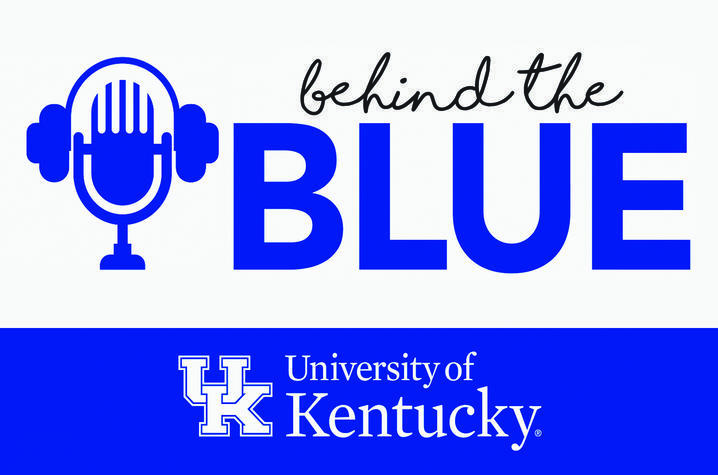
LEXINGTON, Ky. (Jan. 28, 2022) — When University of Kentucky alum Elle Smith was crowned Miss USA in November, her life changed in an instant.
With her name catapulted into the national spotlight, Smith quickly learned the power of the Miss USA title and platform, and the importance of capitalizing on every open door.
During her year of reign as Miss USA, Smith will work with the National Cervical Cancer Coalition to educate women about cervical cancer prevention and treatment in an effort to empower women to seek preventative care.

